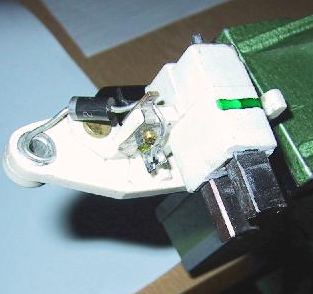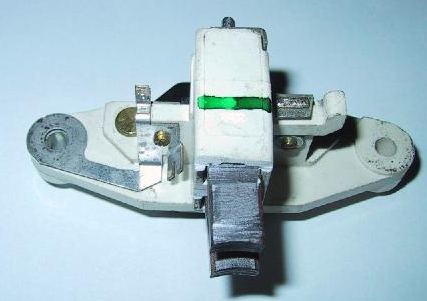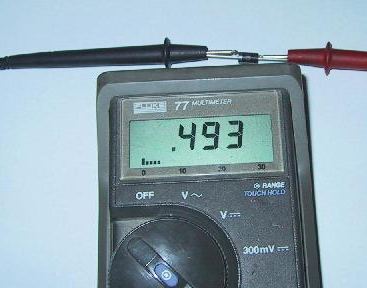|
|||||


BackgroundMy Pantera has an Optima battery, which needs a charging voltage between 13.8V and 15V. The car has a Bosch 90A alternator, with a builtin voltage regulator. Unfortunately the Bosch regulators seems to be a bit conservative with respect to charging voltage and the current has to flow from the alternator in the rear, the Pantera has the engine midships, through a rather long wire to the ampere meter on the dash and to the battery in the front. Even though the alternator has a nominal output voltage of 14.1V, the best I have seen at the battery is 13.7V, and this is not sufficient to keep the battery fully charged. As this car is not driven daily and there's a few small constant loads, alarm, EFI memory keepalive, digital clock and the memory for the stereo, it sometimes happens that the battery is almost drained and I need to use jumper cables to start it up. Even if the battery is so empty that it will not start the engine doesn't the charging system provide enough voltage to properly charge it. I have seen documentation on a Hella regulator that is available for most any alternator and this is a higly advanced charging system. It has separate ground and +12V sense wires that run all the way to the battery, and it runs a complete charging program, where it changes the voltage up and down in cycles. This regulator is to be mounted externally and is much too expensive for my taste. A much simpler solution would be to just increase the voltage around 0.5V or so. First attempt I found a slightly used regulator in the garage from an Audi I once had. It had a charging problem and replacing the regulator was one thing tried. I ultimately had to replace the alternator and as it had a new regulator, I removed the newly installed one before returning the old core. Checking the part number of this regulator I see that the nominal voltage for it is 14.5V, compared to the 14.1V in the Pantera. Figuring that 0.4V might be just what I need, I replaced the old regulator with this. One problem I faced was that the alternator is an older Bosch type with 32mm slip rings and the regulator was for a newer one with 28mm rings and that made the plastic around the brushes to interfere sligthly with the rings. I filed the plastic down sligthly, which took care of this. An advantage is that I now have 2mm more brush to wear down! After hooking up the wires and mounting the alternator, I fired the engine up, with the multimeter connected across the battery. Still around 13.5 to 13.7V... The fix The regulator senses the voltage between D+ and ground and adjusts the current to the rotor to obtain the nominal voltage. If one could raise the regulator ground slightly above the alternator ground, this would be seen as a higher output voltage. In normal operation a current flows from the ground terminal of the regulator to the alternator ground and we would need to create a small voltage drop between the regulator ground and the alternator ground. The simplest device to use for this is a diode. A silicon diode has a fairly constant forward voltage drop of 0.5V - 0.8V and inserting this between the two grounds would increase the ouput voltage. 
The unmodified regulator. The flat metal tounge that goes around the screw hole to the left is the regulator ground connection.  I found a 1N5402 diode in one of my component boxes and it handles 200V and 3A nominally. Verifying the voltage drop using the multimeter we see that it is around 0.5V with the small current the multimeter uses.  Here I have cut the tounge off the regulator, soldered the anode of the diode to the regulator ground and wrapped the cathode around the screw hole. After installing the alternator again I can now see that the voltage across the battery poles, with the engine running, is around 14.5V, which is just what I aimed for. I have now been using the mod for a few months and it seems to work as expected. The battery has not drained since the mod. Thomas Tornblom |